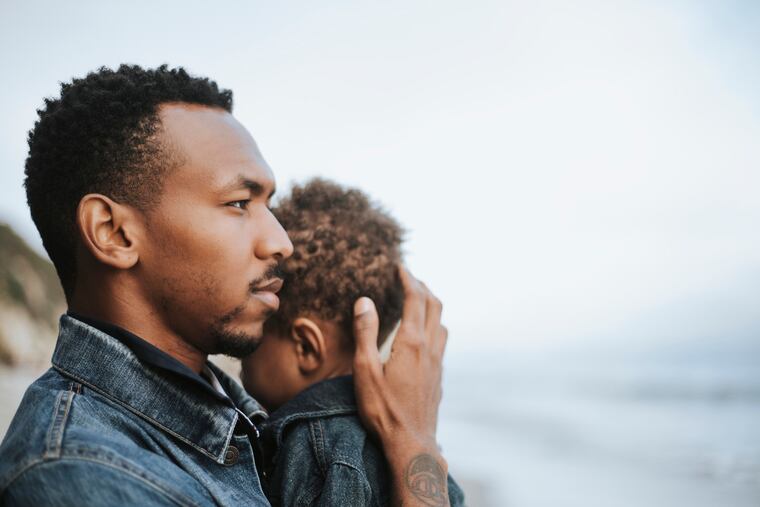Black men have the lowest life expectancy of any Philly group, says a new report
More than 40 percent of black men in Philadelphia have hypertension and almost one in three have obesity.

Black men in Philadelphia have the lowest average life expectancy — 69 years — of any population group in the city, driven by high rates of homicide, early cardiovascular disease, drug overdoses, cancer, and death in infancy.
More than 40 percent of black men in Philadelphia have hypertension and almost one in three are obese. While the rate of asthma-related hospitalizations among black boys has declined, it is still nine times higher than the rate for white peers.
These are some of the major findings of Brotherly Love: Health of Black Men and Boys in Philadelphia, a first-ever report on the state of black males in Philadelphia released Thursday. It was developed by the city health department, the Mayor’s Office of Black Male Engagement, and the Mayor’s Commission for African American Males.
Historically, as in other urban areas, health outcomes for black men have been poorer than for other racial groups or women in Philadelphia. City officials say this new report lays out some of the benchmarks from which to seek progress. It also notes some of the gains that are being made.
Health insurance coverage is at an all-time high for black Philadelphians after implementation of the Affordable Care Act, with its expansion of Medicaid eligibility. And high school, college, and graduate-school graduation rates among black Philadelphia males are increasing, while unemployment is declining.
“The first step to solving any problem is drawing attention to it,” said Thomas Farley, city health commissioner. “The Brotherly Love report shows that, while Philadelphia has many initiatives to promote health, African American men are still not as healthy as other demographic groups and not as healthy as they could be.”
With the information in the report, Dwayne Wharton, vice chair of the Mayor’s Commission on African American Males, said his office will seek to engage black men and others “to explore how resources can be better distributed, opportunities can be expanded, and courageous policies can be championed to increase the health and well-being of black men and boys in our city.”
The report notes that many of the study’s poor health outcomes reflect long-standing negative circumstances, such as living in poverty — a fact of life for 23 percent of Philadelphia’s black men — as well as adverse childhood experiences, economic and educational disadvantages, and exposure to community violence and trauma.
Yet the report also showcases the efforts of Philadelphians who have worked on their own or partnered with organizations to better the health and life circumstances of black men and boys.
“This report faces health outcomes for black men and boys head-on by detailing the stressors that contribute to these outcomes and highlights the collective-impact approach that the city and various agencies are using to address them,” said Octavius Blount, coordinator for the Mayor’s Office of Black Male Engagement.